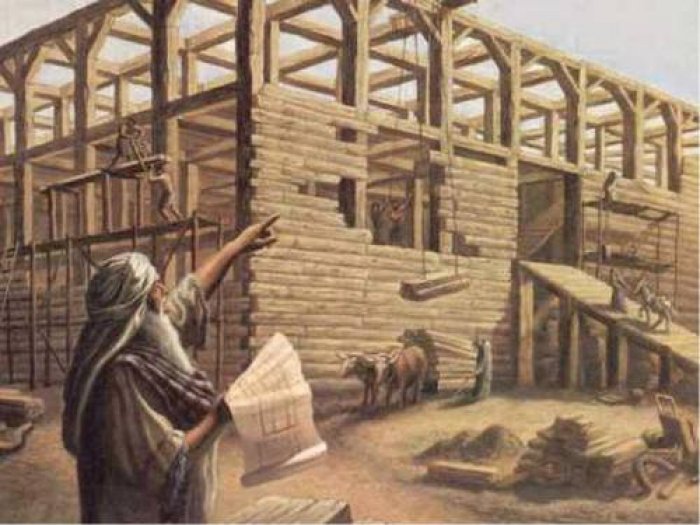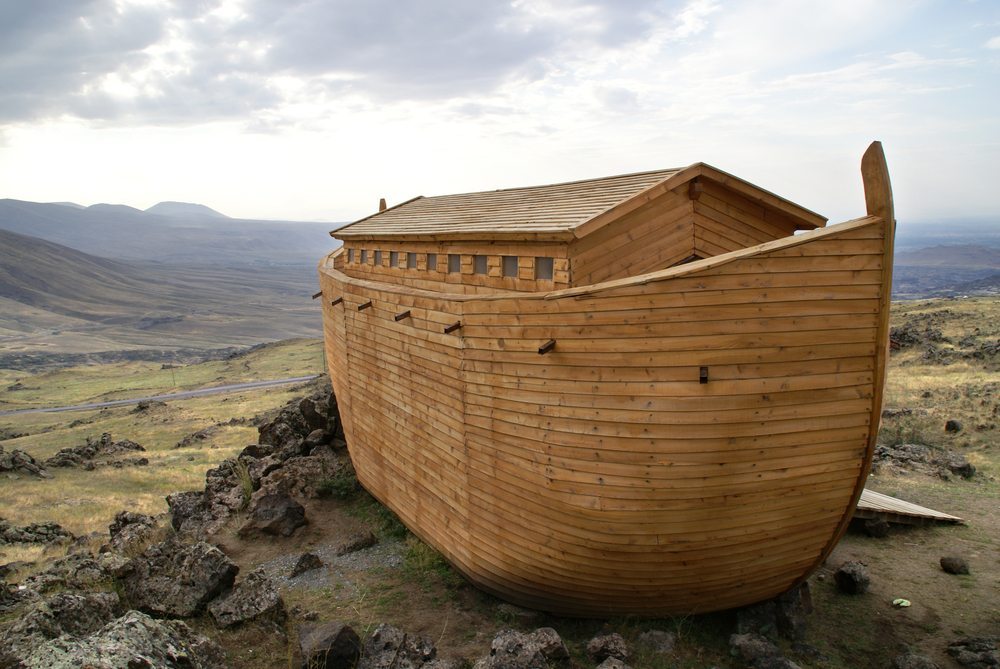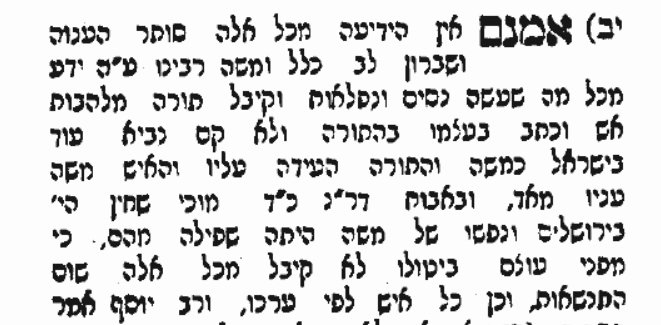BSD
Suka 52b (2)
Tamuz 15, 5783. July 4, 2023
1- We continued with the Agadata where the Gemara describes the 4 ‘craftsmen’ that constructed or will construct projects.

משיח בן דוד and משיח בן יוסף, the 2 משיחים who will rebuild the 3rd בית המקדש.
אליהו הנביא who built the מזבח on הר הכרמל and Shem, the son of נח assisted his father with the building of the תיבה.

Mentioned briefly the שיחה of the Rebbe about the building of the תיבה. Since נח was instructed עשה לך תבת עצי גפר, the issue is- if the לך meant to exclude any assistance from others?
In פשוטו של מקרא it is indeed so, which explains why Rashi does not need to explain why it took 120 years for נח to construct it!

We find a similar expression to the building of a סוכה:
. חג הסוכות תעשה לך. And yet, there is no obligation for one to build his own Suka.
See here in LS 15, page 34 and on.
2- The גמרא continues to describe the great strength of the young כהנים that carried up the 30 לוג of oil to the top of the lamps for שמחת בית השואבה.
It compares their strength with the son on מרתא בת בייתוס, who was a very muscular כהן .

He was able to carry two sides of an ox. To show his strength he did this while walking עקב בצד גודל – heel near the toe – meaning very slowly.

3- We discussed that it seems from Rashi that in general, the כהנים when carrying heavy loads in the Beis Hamikdash would run.
Mentioned the תוספות ישנים in Yoma 22a who say that all the movements of any עבודה inside the בית המקדש would be עקב בצד גודל. Perhaps it’s a sign of respect not to rush or run.

שהזהיר הקב”ה את הכהנים שלא יהו פוסעין פסיעות גסות על גבי המזבח אלא יהו מהלכין עקב בצד גודל
4- One the chants of the חסידים ואנשי מעשה, was “We’re lucky that our conduct, when we were young, is not embarrassing us now, in our senior years”.

Their singing seems to be boasting about their status. Isn’t that contrary to being a חסיד?
5 – Spoke a bit of history about the Kotzker Rebbe, Reb Menachem Mendel Morgensztern. For a time perspective, he was 25 years old when the Alter Rebbe passed away in 1812.

His grandson, Reb Yisroel Morgensztern from Pilov, the 3rd Kotzker Rebbe, was known as an active proponent for Jews to move to Israel.
Reb Manachem Mendel’s daughter married Reb Avrohom Borenstein who was known as the Sochotchover Rebbe and author of the אבני נזר.

His son was Reb Shmuel is known by his epic book called שם משמואל.

In the Avnei Neizer CM 95. Page 125 Reb Shmuel (per the instruction of his father) writes to his cousin, Reb Yisroel the Rov of Pilov about the above question. How can a צדיק boast of his status and level of piety?
See here.
His point is that knowing one’s greatness is not a contradiction to being humble.
He begins with our גמרא where the חסידים would chant that ‘we have not done anything in our young years to be embarrassed about’.
Yet, they were very humble and חסידים.
He quotes a מדרש that משה רבינו considered the ‘lepers of ירושלים’ more worthy of him!

He continues about the oath administered to all prior to being born:
“משביעים אותו, תהי צדיק, ואל תהי רשע, ואפילו כל העולם כולו אומרים לך צדיק אתה, היה בעיניך כרשע”.
Meaning that one needs to strive to be a צדיק, but it’s important to remember that even if you reach such a level, and the entire world thinks you have become a a צדיק , consider yourself a רשע.
So knowing one’s own greatness is compatible with being truly humble.
We mentioned the expression of the שם משמואל, that the explanation of the above ‘has been explained by the Rav OBM [The Alter Rebbe] in the Tanya, and since the book is easily available there is no need for me to copy it’.

6- We concluded with the many explanations of the chant by Hillel:
אם אני כאן הכל כאן.
To be continued BL”N next week.
ר’ ישראל מורגנשטרן הרב מפילוב